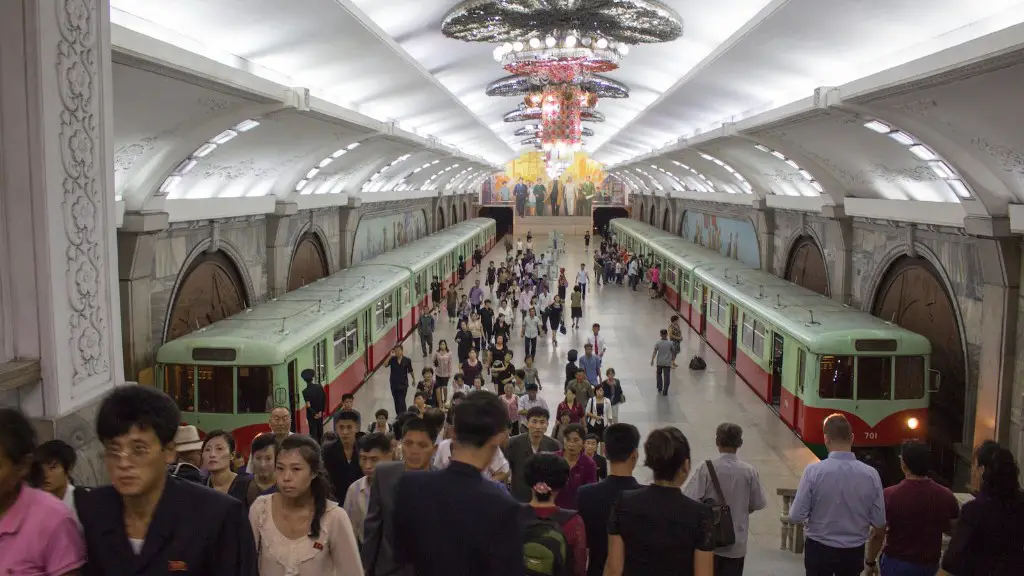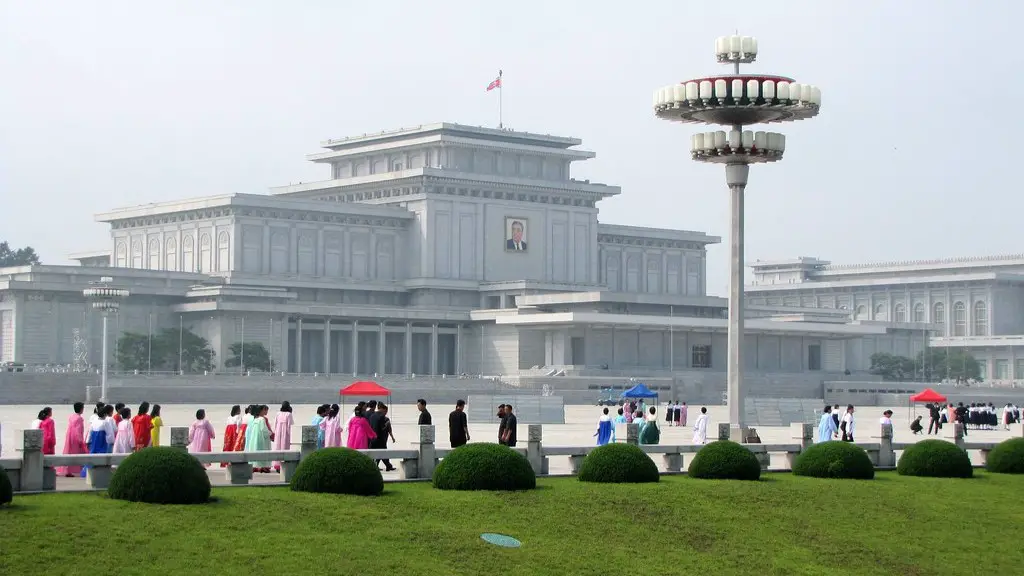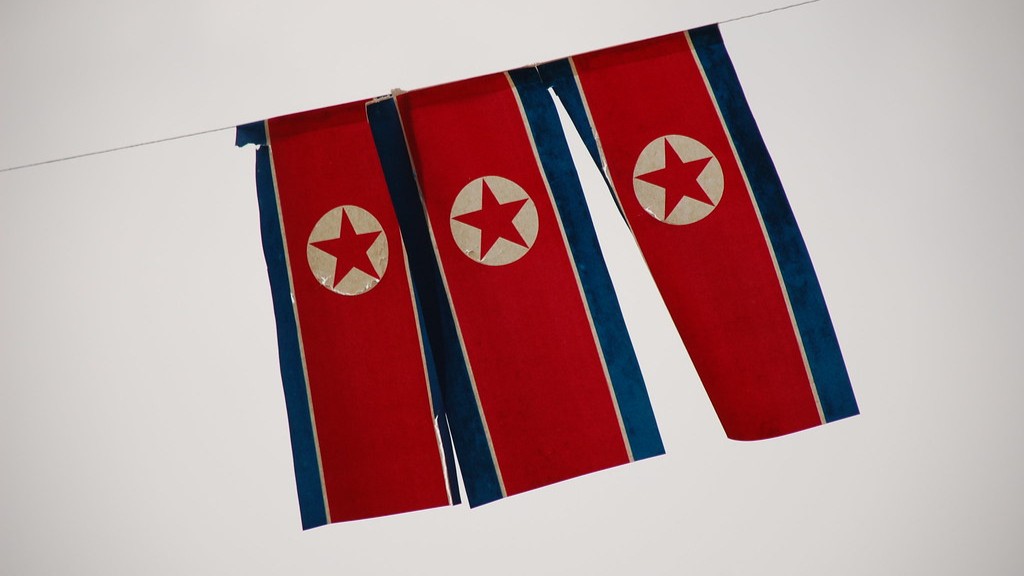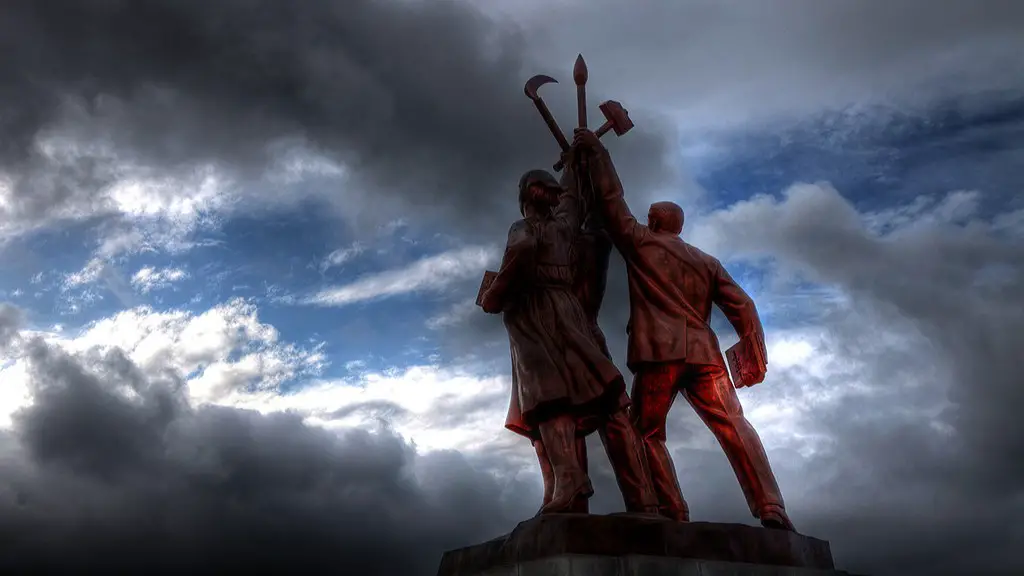North Korea, known as the Democratic People’s Republic of Korea (DPRK), is a country that has been living in fear and extreme poverty for many years. In recent months, the tension between North Korea and the international community has only grown stronger. Due to the country’s attempts to become a nuclear power, the United Nations and various countries have imposed economic sanctions and pressure on the DPRK to transition from nuclear weapons. But why does North Korea, a small state located on the Korean Peninsula, begin such an ambitious process of nuclear weapons development, instead of focusing on economic growth and public welfare.
Firstly, one of the most powerful motivations for North Korea to pursue a nuclear weapons program is its priority for self-preservation. In the face of a hostile world, from which the country isolated itself, the DPRK considers nuclear weapons as an effective tool to protect its sovereignty and independence. This is especially true in view of the presence of the United States in the region. This makes the nation view nuclear weapons as a real threat in case the United States decides to invade North Korea.
Second, North Korea has had a long-standing historical distrust of the United States and of other countries. The North Korean government believes that foreign interference in its affairs poses a direct threat to its national security, and that developing nuclear weapons is its only hope of ensuring an effective deterrent against aggression. For this reason, North Korea views nuclear weapons as an essential part of its national defence strategy.
Third, North Korea is fiercely determined to become a powerful world player. The DPRK’s leaders want to build their country into a formidable nuclear power, with the capability to launch devastating strikes against its enemies. This isn’t only about having a tool of deterrence — but also a symbol of power and strength, a demonstration of their country’s capabilities and the ability of the rulers to protect and safeguard their nation.
Fourth, North Korea has also been attempting to strengthen its international standing. Developing nuclear weapons is seen as a way to gain more attention and recognition from the international community and as a way to ensure that the country is able to negotiate better deals in the future. North Korea’s attempts to join the ranks of nations possessing nuclear weapons are seen as a way to increase their diplomatic leverage in the world.
Finally, North Korea has a deep mistrust of the international community, believing that its neighbours and allies in the region will not come to its defence in times of need. This fear of abandonment has led the country to invest heavily in nuclear weapons development and to become increasingly isolated from the rest of the world.
The North Korean Mindset Towards Nuclear Weapons
To understand North Korea’s violent pursuit of nuclear weapons, we must examine the mindset of the country’s leaders. North Korea has a long tradition of militaristic and belligerent rule. Since the nation’s founding in 1948, its leaders have consistently favored a militarized approach to foreign policy. The country has used its military might to intimidate and suppress its enemies, as well as to exert its political influence in the region.
At the same time, North Korea has also developed a strong sense of nationalism and pride. This is a nation that prides itself on its strength and military prowess, and its leaders see nuclear weapons as a symbol of this power. The country’s leaders have therefore advocated for the development of nuclear weapons, seeing them as a way to demonstrate North Korea’s great power and to get its message across to the world.
The North Korean leadership also believes that nuclear weapons are the only way to guarantee its security in an increasingly uncertain geopolitical climate. North Korea is surrounded by much stronger and more powerful countries, and its leaders fear that without a strong deterrent, their nation could be vulnerable to attack.
Finally, North Korea’s leaders believe that nuclear weapons will give the country a seat at the table in negotiations and international discussions. The country’s leaders want to be seen as a credible and powerful nation, and they view nuclear weapons as the only way to do so.
The International Community’s Response
The international community, led by the United States, has responded to North Korea’s pursuit of nuclear weapons with a policy of tough economic sanctions and diplomatic isolation. The United States, alongside other nations, has imposed a raft of economic sanctions on the DPRK, in order to weaken the country and dissuade it from continuing its nuclear weapons program.
The international community has also sought to increase the pressure on North Korea through diplomatic channels. The United States, along with South Korea, Japan and China, have all pursued diplomatic efforts to persuade North Korea to abandon their nuclear ambitions. This includes engaging in talks and negotiations, in addition to implementing bans and sanctions on North Korea.
These efforts, however, have so far had limited success. North Korea continues to pursue its nuclear weapons program, despite increasingly stringent economic sanctions and international pressure. This has led to a situation of heightened tension between the United States and North Korea, with the threat of further military actions looming in the background.
The Economic Cost of Nuclear Weapons
Aside from the political implications of North Korea’s pursuit of nuclear weapons, there is also an economic cost. North Korea’s emphasis on nuclear weapons development has come at the expense of its own economic development. The country has been forced to spend vast amounts of money on its nuclear weapons program, while its people are left in dire poverty.
The country’s economy is highly inefficient and mismanaged, with a lack of resources and high levels of corruption. These problems have been exacerbated by the country’s nuclear ambitions. The costly process of building and maintaining nuclear weapons has drastically weakened the country’s already weak economy, leading to even greater poverty and instability.
Furthermore, the international economic sanctions imposed on the country have made it even harder for the North Korean government to pursue economic development. The sanctions have cut off much of the country’s access to foreign markets and investors, making it difficult for the country to grow its economy.
The Long-term Impact of Nuclear Weapons
Finally, it is important to consider the long-term impact of North Korea’s pursuit of nuclear weapons. The country’s nuclear arms race has had far-reaching effects, leading to increased global tension and a growing risk of military conflict. This could potentially lead to catastrophic consequences, with devastating consequences for the entire world.
Furthermore, North Korea’s development of nuclear weapons is also damaging the efforts to contain global nuclear proliferation. By developing its own nuclear weapons, North Korea has sent a message to other countries that developing nuclear weapons is acceptable and encouraged. This is a dangerous message to send, and could potentially lead to other nations following suit.
Overall, North Korea’s pursuit of nuclear weapons is a dangerous example that should be halted as soon as possible. The economic, political, and human cost of nuclear weapons is simply too high to ignore. The international community must continue to work towards a long-term solution that will de-escalate the current crisis and bring North Korea back to the negotiations table.
The Legacy of the Cold War
The legacy of the Cold War still looms large over North Korea’s nuclear weapons program. North Korea has had deep-seated suspicions of the United States and other Western powers since the end of the war, believing that these countries are out to exploit and undermine their country. As a result, North Korea’s leaders have remained fiercely determined to protect the nation by developing a powerful nuclear arsenal.
This deep sense of insecurity and mistrust has been exacerbated by the on-going confrontation between the US and North Korea. The US has continued to criticize and threaten the North Korean regime, leading to further mistrust and paranoia. This has further deepened North Korea’s determination to develop nuclear weapons, as a way to protect itself from outside aggression.
At the same time, countries such as the United States have also failed to reach out to North Korea in a meaningful way. By refusing to engage in constructive dialogue with the North Korean government, the US has only worsened the situation and encouraged North Korea to pursue nuclear weapons development.
Conclusion and What can be Done?
It is clear that North Korea’s pursuit of nuclear weapons has been motivated by a complex array of factors, including fear and insecurity, a sense of pride, and the desire to gain respect and recognition from the international community. As the international community continues to seek a resolution to the crisis, it is important to understand the motivations behind North Korea’s actions, in order to find an effective solution.
The most important step is to engage in meaningful dialogue with the North Korean regime. Instead of attempting to isolate and punish the country, the international community should focus on creating an environment of dialogue and trust. This could potentially lead to an agreement that would result in North Korea abandoning its nuclear ambitions, in exchange for economic and diplomatic incentives.
Ultimately, finding a resolution to the crisis will require patience and persistence. The international community must continue to put pressure on North Korea, while also offering a path towards a diplomatic solution. Only then will it be possible to find a lasting resolution to the crisis, and put an end to North Korea’s pursuit of nuclear weapons.





